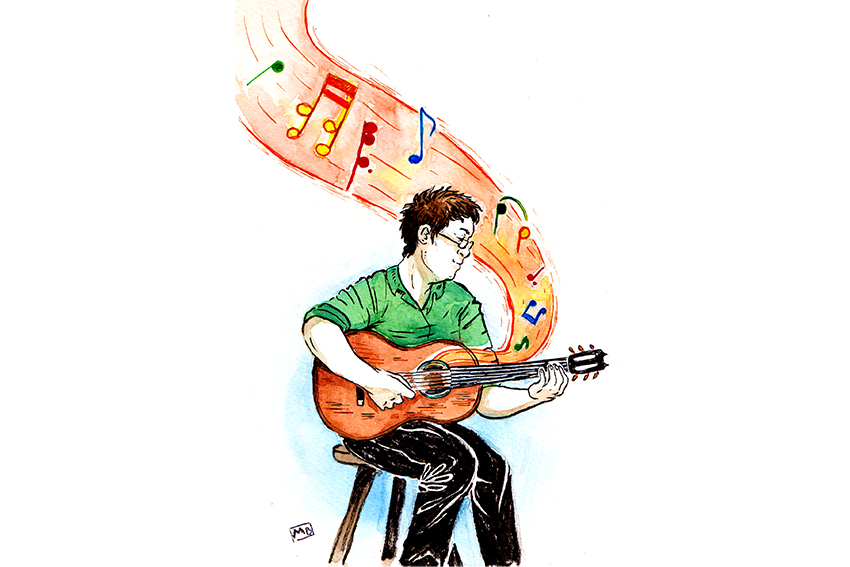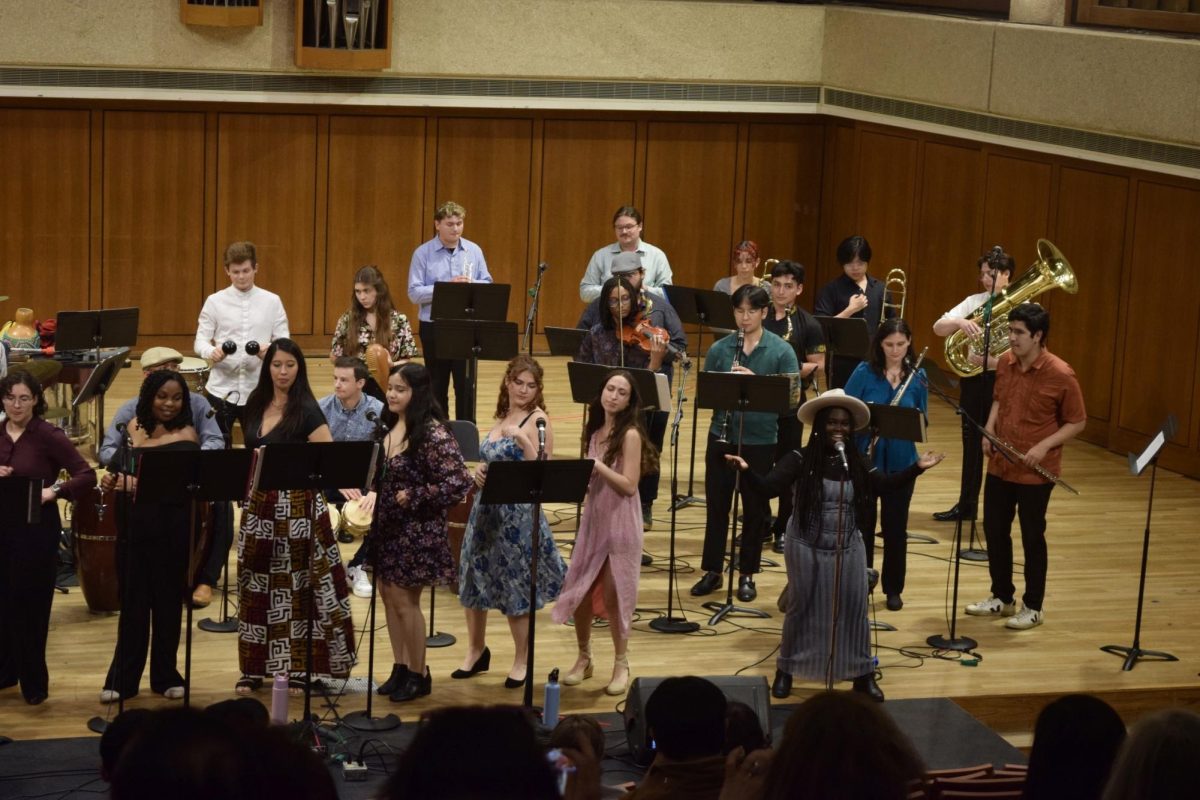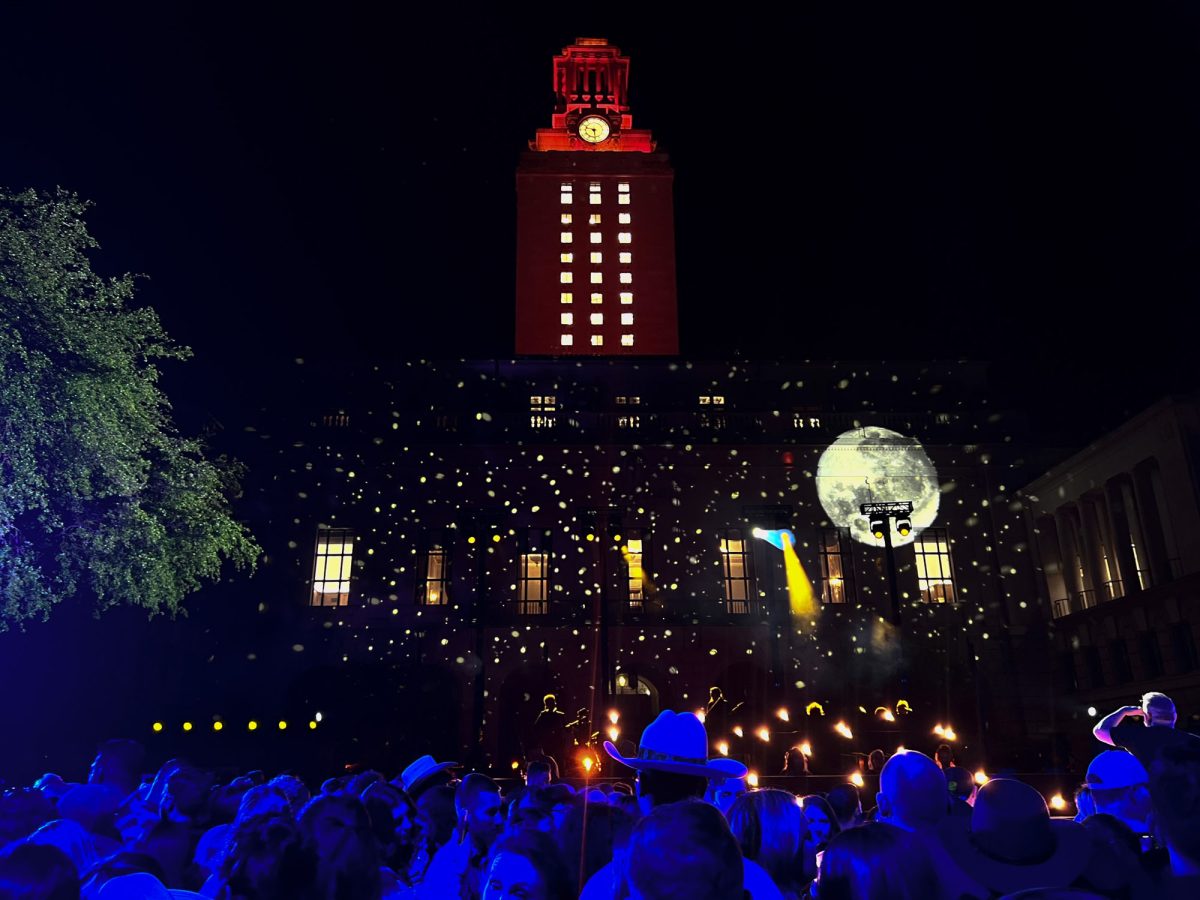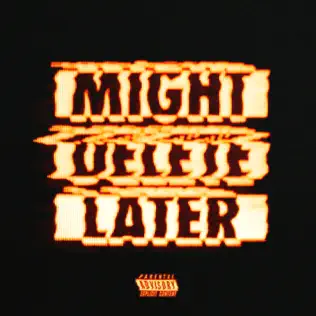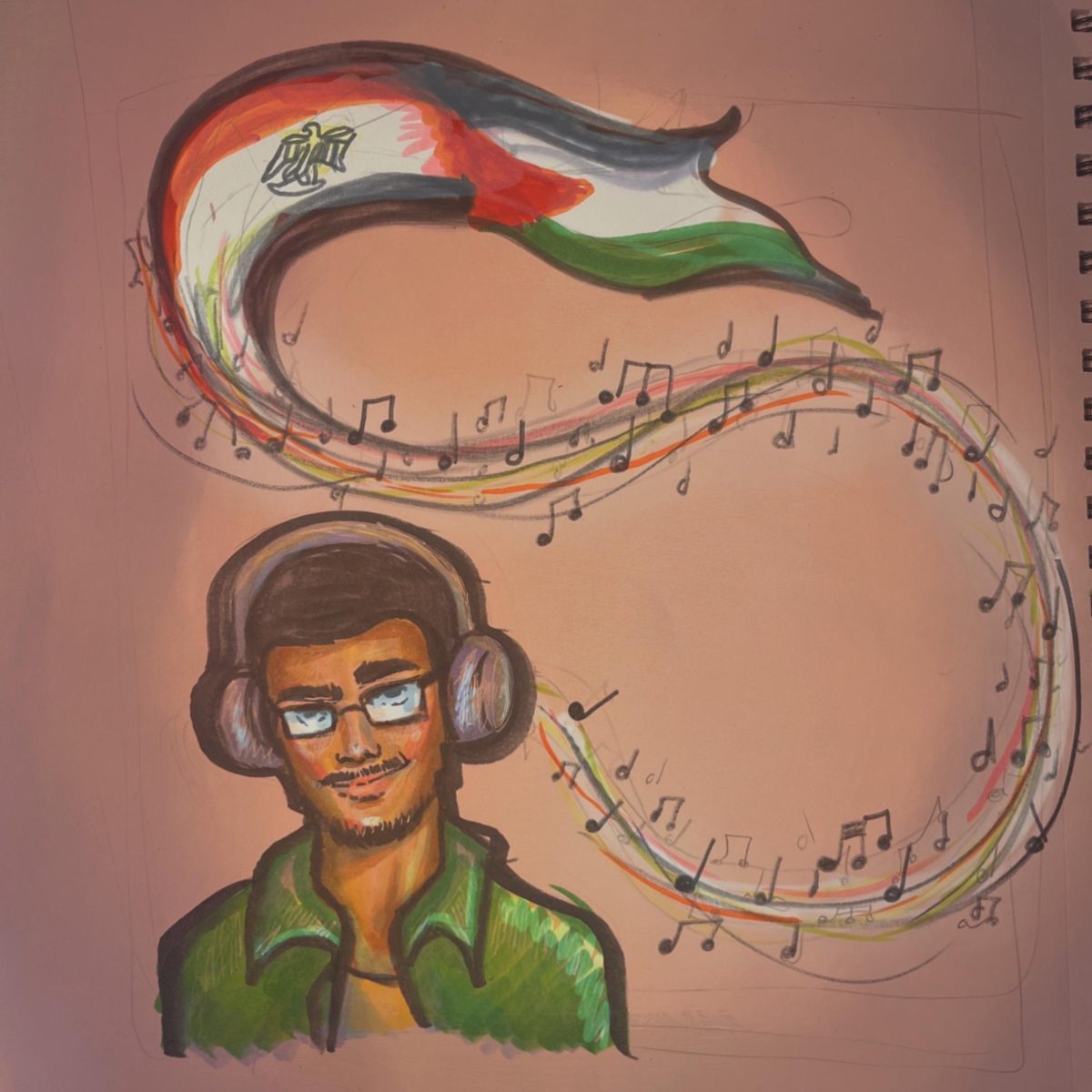Teresa A. Valdez, Department of Spanish and Portuguese Assistant Instructor
Recommendation: Gipsy Kings
Growing up with a father who led a high school mariachi band and a mother who enjoyed singing old Mexican songs, Valdez was raised with a love for Latino music. But it wasn’t until she spent time as a Peace Corps volunteer in Bolivia that she really became interested in the genre.
“It was a way of connecting with people,” Valdez said. “If I hear a song that I first heard when I was in Bolivia, I instantly go back to that time. I remember being in a chicheria in the campo in Bolivia and people dancing to that.”
She said she wants to show college students the diverse and fast-paced music of Latin America that characterizes bands like the Gipsy Kings, so they can be united with different cultures the way she was in Bolivia.
Maria Del Pilar Zazueta, Department of Latin American Studies Lecturer
Recommendation: (Me Llamo) Sebastian
“My generation was the generation of Latin rock,” Zazueta said. “There was Café Tacuba and Caifanes and Jaguares. I grew up in Mexico City and we used to go see all of them.”
Zazueta said her music recommendations depend on the age of the person who asks her. She thinks it is important to show younger Latinos that music of Latino descent doesn’t have to be boring or old.
“We have this preconception that any music that does not come from Europe [or] the U.S. should be traditional and should be folkloric and that is not the case,” Zazueta said.
Prominent Chilean ballad lyricist and singer (Me Llamo) Sebastian showcases the vibrancy of Latin music through his compositions, and his lyrics highlight different aspects of daily life in Latin America.
Silvia D. Ramirez, Department of Spanish and Portuguese Lecturer
Recommendation: Placido Domingo
Growing up in Mexico City, Ramirez was raised listening to Spanish music and can still remember her parents dancing Danzon around the house and singing boleros at family gatherings. Lola Beltran’s ballads bring to mind the great romances of her youth.
Ramirez said she thinks it is important to teach the new generation of Latinos about the great variety of older Latino music, preserving the more traditional Latino sounds.
“Everyone says they like dancing salsa, but I particularly like guiding students to the classical Latin music because many are unaware that Latinos have that kind of music,” Ramirez said. “It astounds me when I ask in my classes if the students have heard of Placido Domingo and nobody seems to know who he is.”
Lina Del Castillo, Department of History Assistant Professor
Recommends: La 33
A U.S. native with Colombian roots, Del Castillo sees Latin music as one of her main connections to her heritage. Growing up, Argentinian rock band Soda Stereo was one of the bands that defined her generation and their music gave her a hint of what she missed after not being raised in Latin America. She remembers seeing Colombian salsa band La 33 live on her 30th birthday with three other friends turning the same age. She said she thinks her mixture of U.S. and Latin cultures allowed her to appreciate different kinds of Latin music.
“Latin music is a very difficult thing to define,” said Del Castillo. “What may seem Latin to some may not be Latin for others, like Carlos Vives. Shakira, I consider her a Latin artist, but Colombians think she is very mainstream so it’s kind of the perspective of where you are from and what you are used to listening to.”
Paloma Diaz, Latin American Studies Program Coordinator
Recommendation: Victor Jara
When Diaz arrived from Chile 22 years ago, her musical preferences had been strongly influenced by her political experiences in South America.
Through music, she said people can learn about the political troubles of South America in the ’70s and ’80s. Political activist and musician Victor Jara is one artist who used his lyrics to tell the stories of the public’s protests.
“This music symbolizes a level of awareness that I think younger generations might not have, that music is not just for enjoyment but to communicate a vision of society which is sometimes missing from the current songs,” Diaz said.
Such music has become very dear to her after her personal experiences.
“I was arrested twice in Chile for protesting the streets,” Diaz said. “We were singing inside the jail and I remember the song was ‘El Derecho de Vivir en Paz,’ the right to live in peace, by Victor Jara.”



